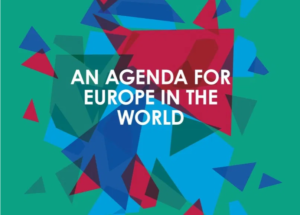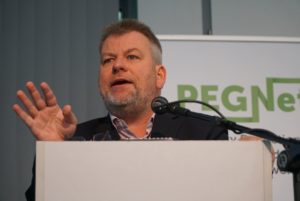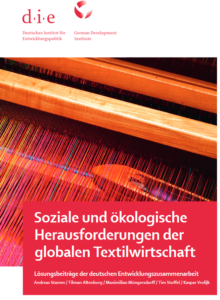
In dieser neuen Publikation, die zum Amtsantritts der neuen EU-Kommission unter der Leitung von Ursula von der Leyen vorgestellt wurde, präsentiert die European Think Tanks Group (ETTG) diese Agenda für Europa in der Welt. Sie enthält konkrete Vorschläge für Maßnahmen in Schlüsselbereichen, in denen die EU etwas bewirken kann. Die Beiträge konzentrieren sich auf Themen wie Frieden und Sicherheit, Mobilität und Migration, Klimaschutz, Energie und Urbanisierung, Handel und Entwicklung, menschliche Entwicklung, strategische Partnerschaften, Demokratieförderung und Entwicklungsfinanzierung. Das DIE ist eines der fünf Mitglieder der ETTG.
Weitere Informationen zu diesem Netzwerk finden Sie hier: https://ettg.eu/
Lesen Sie die komplette ETTG-Agenda hier: https://ettg.eu/2019/09/09/an-agenda-for-europe-in-the-world/


